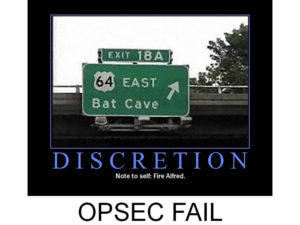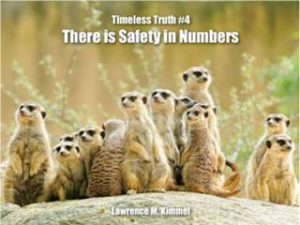In past articles I have spoken of a few way to prepare for disasters of any sort. The food shortages in Venezuela should be a reminder of that. It should also remind you, no matter how much gold, silver or bullets you have, if there are no beans, you can’t buy or trade for them.
This article is based on the presumption you have stockpiled a minimum of supplies and needs for yourself and your family. Only after you have done that should you begin your barter pile (unless you buy both at the same time like a 2 pack of aspirin).
During an extended event, whether it be weather created (tornado, ice storm, famine, hurricane) or manmade (economic collapse, war) you should not only have prepared for yourself and your family but you should have items for bartering. Why? Because there will be something you forgot about or need more of or you just want to be a good person, hand someone a can of food and send them down the road.
First and foremost never let anyone see any of your stashes before, during, or after an event. Have these and your other non-barter items in separate places. Never get items out where people will see or think “ok, he keeps all his barter items in the hall closet”, even if it is your sister, she will slip and tell someone who tells someone who breaks into your home. We call it OPSEC – Operational Security. You don’t want to bring out all your “stock” either, make the verbal trade first then get the item(s).
When bartering, negotiate like your life depends on it BECAUSE IT DOES even in today’s economy someone will kill you for your X-Box. The best thing to do is meet somewhere else (like a flea market or open air market), discuss barter items, separate, go get what you have discussed, meet in an open public area and finalize or cancel the trade.
If you are traveling with items to trade / barter, break the item(s) down if at all possible. Have some in your shoe, some in each pocket, some in a coat / jacket pocket, some in each compartment of a backpack, NEVER all in one place!
I would suggest having three people on your side. It goes to the old saying, “drivers drive, shooters shoot, leaders lead”. You will have safety in numbers as well as multiple eyes and more minds looking for something that just doesn’t look right.
Items I believe you should consider:
• Coffee (you can get it on sale or in generic) smaller cans. Instant is probably best
• Canned food, when on sale (Harter House regularly has canned corn, cream corn, peas and green beans for 39 cents a can)
• Salt in 1 or 2 pound containers
• Sugar in the 4 or 5 pound bags, I am not sure about the 1 pound boxes.
• Food should only be traded in small quantities and very discreetly to those who know to keep their pie hole shut, if word gets around you have extra, you probably will get your throat slit.
• Seeds (you will need to rotate them, they do not last forever)
• Candles
• Matches or flint
• Ziploc bags – keeps things dry and small things together. If Walmart is out, where will you put “stuff”?
• Pocket knives
• Mason jars and lots of their lids
• Duct tape
• Those self-powered flashlights you squeeze, cheap, not very effective/bright but, once the 4 batteries your neighbor has, stop working, it might be worth an ounce of silver to them.
• Boy Scout handbook, I am presuming many people don’t know the basics, if you get them for 25 cents to a dollar at a garage sale and stack them in your bookshelf you might have a winner or at least something you can give your in-laws when they come over mooching. It is less repugnant than “survival” manuals to the unprepared.
• Wind up watches, if you find a source, let me know.
• Batteries with dates expiring in the future, get brand name not cheap ones, the cheap ones lose their charge fairly quickly.
• Pellet gun(s) and ammo, the buyer is less likely to kill you with it later.
• Cigarettes are questionable – if they need it that bad, they might have to steal items to trade for the smokes, and if they think I have more, they might try to steal from you.
• Alcohol is questionable – if they need it that bad, they might have to steal items to trade for the drink, and if they think I have more, they might try to steal from you.
These items can be generic but remember, you might end up needing it yourself.
Paraphrasing a Proverb from the Bible, only a fool helps a thief.
Don’t count on your stored emergency food for bartering, this needs to be a different pile.
Rotating your “inventory” can be easy. Before there is an disaster, you can pull the beans you need today from the emergency pile, move a can from the barter pile and when you go to the store and buy a new can you replace it in the barter pile.
You don’t need a large amount of bartering, if people figure out you have lots of stored items you will run into trouble, your door might get kicked in, your throat slit over it. Keep your mouth shut about what you have.
You have a brain (you are reading this so I presume you do), as you walk around Walmart, Home Depot and IKEA, think about what is cheap and plentiful today but may have value / be scarce during a recession like in the United States the 30’s or Germany in the 40’s or Greece or Argentina or …
Go to flea markets and giant garage sales, learn to negotiate now. While there look for ideas for the future, say a manual can opener for you, or 10 of those crappy military ones for bartering in the future.
Having been a short term missionary in Uganda, and volunteering in Emergency Management / disasters I found the 3rd world has some advice on bartering and stocking up.
Plastic containers with screw on tops are valuable, they don’t break like glass and screw tops reduces the likelihood of spilling when dropped or critters getting in. In Haiti they lust after plastic soda bottles, they can store rice or beans or many other food items, the rats don’t get to them, and the moisture does not get to the food.
Shoes and sock are priceless, so having some for trade is a thought.
Medicine will always be in short supply, having extra Tylenol, ibuprofen, triple antibiotic ointment.
Ammunition is something I would only barter to very close and trusted friends. Your neighbor or brother-in-law might use the ammo to shoot you to get all you have. Common calibers you might consider are .22, .38, 9mm, 223, 308 and 30-06.
This could go on forever, take note of what you buy and then determine what you should add to your barter items pile.
I hope this gives you some ideas on what to do and encouragement to actually do something.
Until we meet again, keep your booger hooker off the bang switch until on target and ready to fire.



One thought on “Barter items – in case your world goes to heck”
Comments are closed.